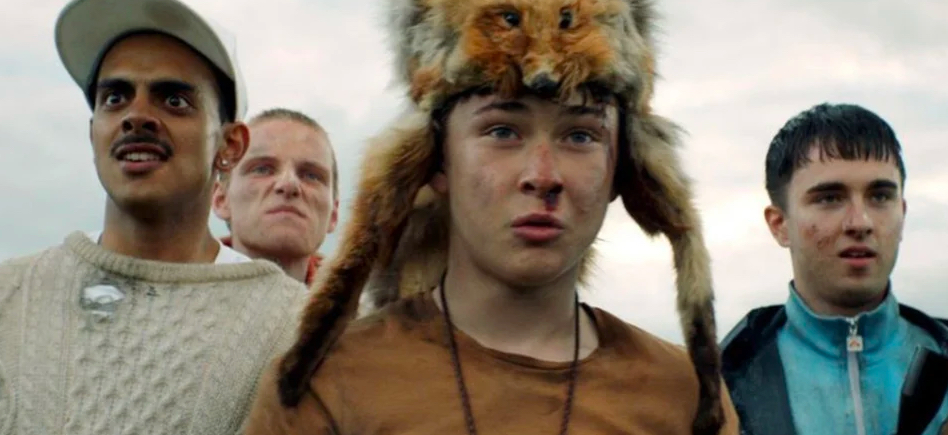Bill & Ted Face the Music
by George Wolf
You know why Death (William Sadler) was really kicked out of Wyld Stallyns?
Well, I’d tell you, but that would take the number of laughs waiting for you in Bill & Ted latest romp down to two…maybe three.
It’s been almost 30 years since their Excellent Adventure gave way to the Bogus Journey, but Bill (Alex Winter) and Ted (Keanu Reeves) are still best buds. Now living in the suburbs, each has the wife that they brought back from Medieval England (Erinn Hayes, Jayma Mays), plus a daughter (Samara Weaving, Brigette Lundy-Paine) that is the younger version of their most excellent dad.
Though they still rock out, Ted is ready to hang up his guitar until the future comes calling.
It’s Kelly (Kristen Schaal), daughter of their old pal Rufus (George Carlin, thanks to a well-placed hologram), with news from the Great Ones. The boys have exactly 77 minutes to play their song that united the world, or reality will collapse.
Whoa.
While it’s nice to know Bill & Ted will finally achieve musical greatness, the world needs that song right now. So why not go into the future, steal it from themselves, then come back and get quantum physical?
Director Dean Parisot, who helped make Galaxy Quest an underrated cult classic, teams with original franchise writers Chris Matheson and Ed Solomon for a time-traveling ode to living in harmony. This time, the historical figures we meet are mainly musical (Mozart, Satchmo, Grohl), but while the journey is long on sweetness and good-natured stupidity, it just isn’t very funny.
After all these years, Reeves and Winter make an endearing pair of overgrown adolescents, and they do seem genuinely joyful about stepping back into that magical phone booth.
The joy that you get from Face the Music will likely match up perfectly with the amount of nostalgia you have for this franchise. The film’s present isn’t bad, either. Because theaters are opening again, and God knows we’re all longing for a simpler time right now.
For almost 90 minutes, Bill & Ted make sure we get one.














